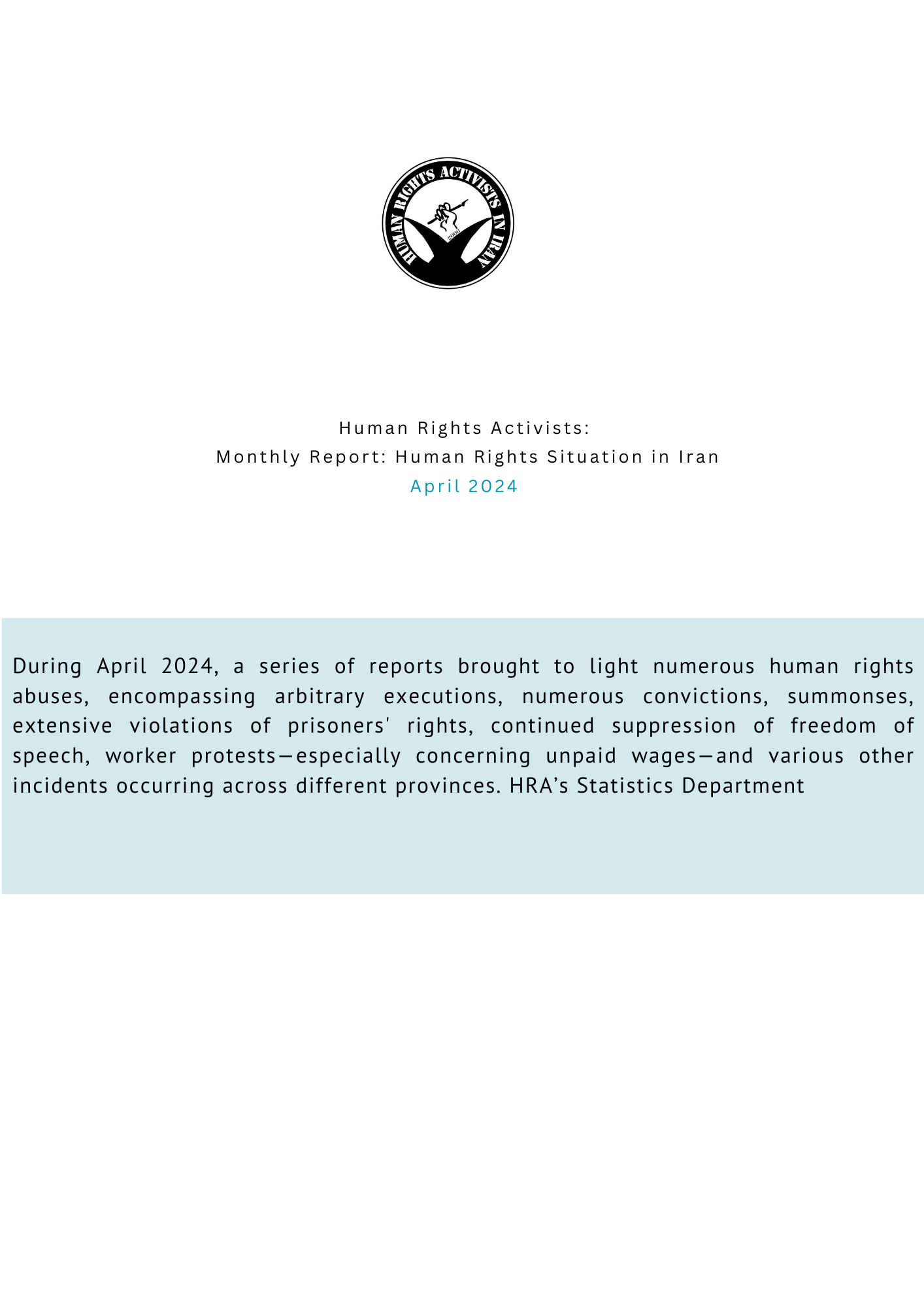In a notable incident, on December 11, 2024, at least 9 prisoners were executed in Qezl-e-Hesar Prison in Karaj, including individuals convicted of drug-related offenses. Branch 26 of the Tehran Revolutionary Court sentenced six political prisoners to death for charges of “armed rebellion,” and others received extensive prison terms and exiles, highlighting the regime’s ongoing repression of dissent.
Freedom of expression remains under severe attack, with 25 individuals arrested in relation to expressing their views, alongside 15 trials and the illegal arrest of 9 individuals without judicial orders. Journalists, lawyers, and political activists continue to face persecution, including the imprisonment of Italian journalist Cecilia Sala, who was detained in Tehran for critical reporting on the Iranian regime. Furthermore, political activist Majid Tavakoli was sentenced to two years in prison, while prominent journalists like Reza Valizadeh and Gholamhossein Karbaschi face severe sentences for their work.
Prison conditions remain dire, with reports of 36 prisoners denied medical care, 22 cases of incommunicado detention, and 51 prisoners transferred to solitary confinement. Among those detained without formal charges is Kowsar Dehban-Zadeh, who has been held for over 85 days. Former political prisoners, such as Akbar Bagheri, continue to face harsh conditions, with reports of severe health issues due to inadequate medical treatment.
Women’s rights violations are widespread, with at least 2 women killed in domestic violence incidents, 1 arrested for hijab violations, and another subject to a brutal acid attack in Tehran. Additionally, women continue to face systemic violence, including the fatal stabbing of a woman in Ilam, underscoring the urgent need for effective laws to protect women. Women’s rights activist Atefeh Rangriz was sentenced to prison for her activism, further demonstrating the repression of women’s rights in Iran.
In the labor sector, workers continue to face unsafe working conditions, with 48 fatalities and 98 injuries recorded this month. Workers in various industries, including steel production and construction, suffer from unsafe practices and poor working conditions. In particular, a tragic workplace incident in Shiraz resulted in the death of a construction worker, while several female workers in Isfahan were poisoned at their workplace. The toll on workers underscores the failure to enforce adequate safety regulations in Iran’s labor environment.
This report highlights the ongoing and pervasive human rights abuses in Iran, including arbitrary executions, suppression of free expression, harsh prison conditions, violations of women’s rights, and unsafe labor practices. These issues continue to demand urgent international attention and action.
Executions
This month in Iran, the execution of 125 individuals took place, comprising 115 men and 6 women, this also includes 9 Afghan citizens. A total of 16 individuals were sentenced to death. Iran persists in executing individuals for offenses falling short of the standards outlined in the International Covenant on Civil and Political Rights. Notably, there remains a consistent trend of individuals being executed for drug-related crimes, a practice in clear contravention of the right to life as stipulated by the ICCPR. This month, 72 people were executed for drug-related offenses.
On December 11, 2024, at least 9 prisoners were executed in Qezl-e-Hesar Prison in Karaj. This includes three prisoners, Naser Takhchi, Iman Moghadam, Rahman Sarlak, and Abdullah Tajik being executed for drug related crimes.
Branch 26 of the Tehran Revolutionary Court has sentenced six political prisoners—Akbar Daneshvar Kar, Seyed Mohammad Taghavi Sangdehi, Babak Alipour, Pouya Ghabadi Bistouni, Vahid Bani-Amarian, and Seyed Abolhassan Montazer—to death on charges of “armed rebellion” through membership in opposition groups. Additionally, these individuals, along with Seyed Ali Taghavi Sangdehi and Seyed Mojtaba Taghavi Sangdehi, have received a total of over 54 years of imprisonment and 20 years of exile to the city of Khash.
The specific sentences are as follows:
- Akbar Daneshvar Kar: Death for armed rebellion; 5 years’ imprisonment for collusion to disrupt national security; 10 years for forming illegal groups.
- Seyed Mohammad Taghavi Sangdehi: Death for armed rebellion; 5 years for collusion; 10 years for forming illegal groups.
- Babak Alipour: Death for armed rebellion; 5 years for collusion; 20 years’ exile to Khash for destruction of public property.
- Pouya Ghabadi Bistouni: Death for armed rebellion; 1 year for illegal border crossing.
- Vahid Bani-Amarian: Death for armed rebellion; 5 years for collusion.
- Seyed Abolhassan Montazer: Death for armed rebellion; 5 years for collusion.
- Seyed Ali Taghavi Sangdehi: 5 years for collusion; 5 years for forming illegal groups.
- Seyed Mojtaba Taghavi Sangdehi: 5 years for collusion; 5 years for forming illegal groups.
December 15, 2024, eleven prisoners, including one woman, were executed in separate incidents at Zahedan and Yazd prisons in Iran. In Zahedan Prison, four individuals—Mohammad-Vazir Roudini, Alireza Gelebacheh, Elyas Tardast (Shahouzehi), and Yaghoub Barahouei-Moghadam—were executed on drug-related charges. In Yazd Prison, seven individuals, including a woman whose identity remains undisclosed, were executed. Six of these individuals—Mohammadali Kharkouhi (Barahouei), Reza Kharkouhi (Barahouei), Salah Rahimi, Abdolbaset Toutazeh, Abdolnaser Toutazeh, and Ne’matollah Toutazeh—were convicted on drug-related charges, while the woman was convicted of murder
Abbas (Mojahid) Korkor, a prisoner in Sheiban Prison in Ahvaz, has been sentenced to death for the second time by the Revolutionary Court of Ahvaz. His initial death sentence was overturned by the Supreme Court, which had remanded the case for retrial. Korkor was previously convicted on charges including “enmity against God” and “corruption on earth” by Branch One of the Ahvaz Revolutionary Court. The judiciary alleges his involvement in the death of Kian Pirfalak, a child killed during nationwide protests, a claim disputed by Pirfalak’s family. The court also accused Korkor of disrupting public order, causing fatalities, and forming opposition groups
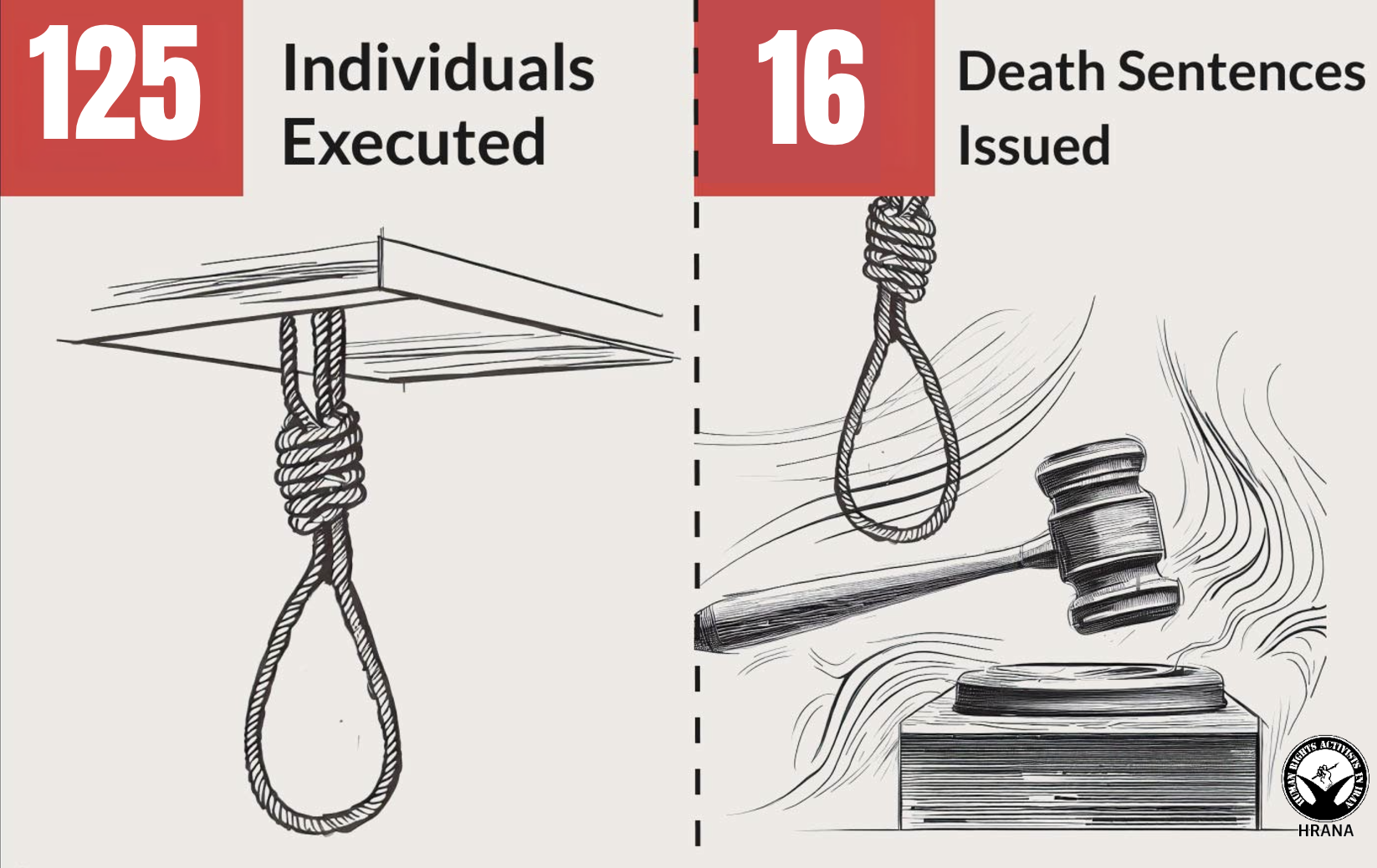
Freedom of Thought and Expression
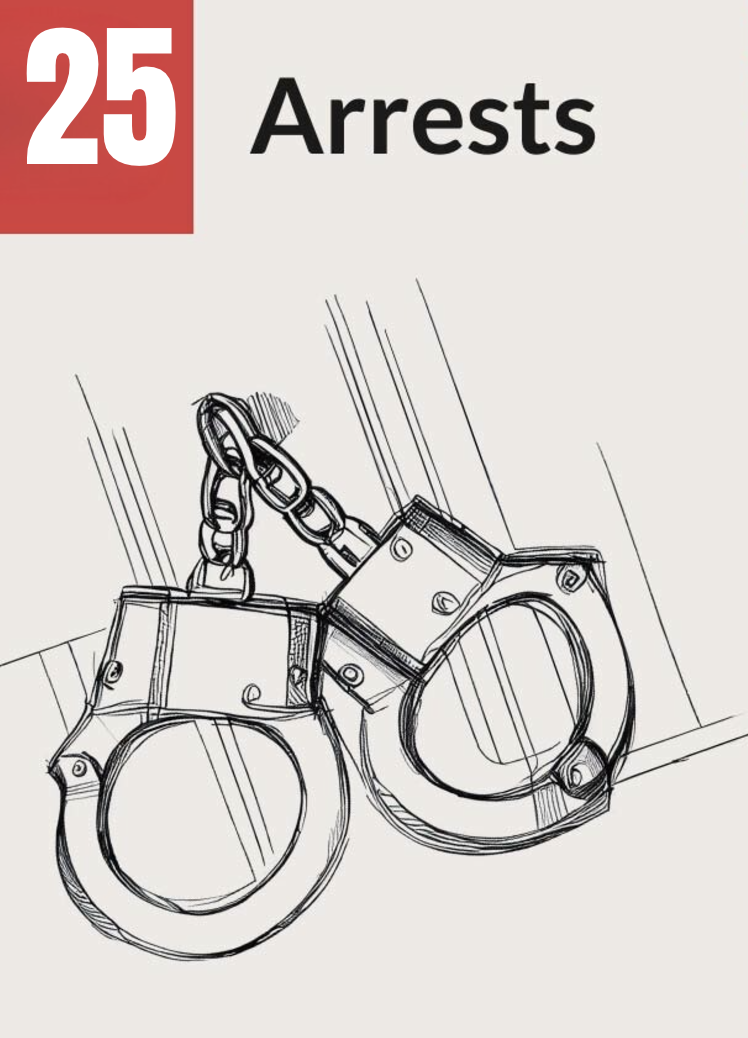 Iran continues to crack down on anyone who protests or criticizes the regime, persistently violating the right to freedom of expression and thought. This month alone, 25 individuals have been arrested related to freedom of expression, 15 trials, and 9 people were arrested without any judicial order. There were also 2 cases of assault and battery by a police officer. Journalists continue to be targeted by the Iranian regime. Reza Valizadeh, a journalist imprisoned in Evin Prison, was sentenced by Branch 26 of the Tehran Revolutionary Court to 10 years in prison, a two-year ban on leaving the country, he was accused of collaborating with the United States. Secondly, Gholamhossein Karbaschi, the editor-in-chief of the HamMihan newspaper, was found guilty by the Political and Press Crimes Court, he has published a caricature of Hazrat Ayyub, a prophet.
Iran continues to crack down on anyone who protests or criticizes the regime, persistently violating the right to freedom of expression and thought. This month alone, 25 individuals have been arrested related to freedom of expression, 15 trials, and 9 people were arrested without any judicial order. There were also 2 cases of assault and battery by a police officer. Journalists continue to be targeted by the Iranian regime. Reza Valizadeh, a journalist imprisoned in Evin Prison, was sentenced by Branch 26 of the Tehran Revolutionary Court to 10 years in prison, a two-year ban on leaving the country, he was accused of collaborating with the United States. Secondly, Gholamhossein Karbaschi, the editor-in-chief of the HamMihan newspaper, was found guilty by the Political and Press Crimes Court, he has published a caricature of Hazrat Ayyub, a prophet.
On December 26, 2024, lawyer Khosrow Alikordi was detained while on parole. Previously sentenced to one year in prison for “propaganda against the regime,” he was summoned by the Vakilabad Prison judge in Mashhad and taken to anundisclosed location. This incident raises concerns about continued repression of legal professionals advocating for human rights.
Italian journalist Cecilia Sala was arrested in Tehran on December 19, 2024. Known for reporting on Iranian affairs, Sala was detained over her publications critical of Iran and is being held in solitary confinement at Evin Prison. The Italian Foreign Ministry confirmed her detention and stated that her contact with family has been limited, though the Italian ambassador has visited her in prison.
Majid Tavakoli, a political activist, has been sentenced to two years in prison by Branch 21 of the Tehran Court of Appeals. This verdict follows the Supreme Court’s overturning of his previous six-year sentence and remanding the case for retrial. In addition to the prison term, Tavakoli faces supplementary penalties, including a two-year ban on leaving the country, residing in Tehran, and engaging in online activities. Initially arrested on October 1, 2022, during nationwide protests, he was released on bail on December 19, 2022. In July 2023, he was convicted of “assembly and collusion” and “propaganda against the regime,” receiving a combined six-year prison sentence and additional restrictions. After serving part of his sentence, Tavakoli was released on bail in August 2024, pending the appeal process
Prison Conditions
In November, there were 36 cases of prisoners lacking medical care and 22 cases of incommunicado detention, leaving families in the dark about the prisoners’ fates due to a lack of contact. Furthermore, 51 prisoners have been transferred to solitary confinement, 3 prisoners have had no access to a lawyer, and 8 have gone on hunger strikes in protest of their conditions.
Former political prisoner Akbar Bagheri has been detained for over a month without contact, raising concerns about his health due to pre-existing conditions. Despite family inquiries, authorities have not disclosed his whereabouts or reasons for arrest. Bagheri was previously imprisoned from 2017 to May 2023 on charges including “propaganda against the regime.”
Kowsar Dehban-Zadeh, sister of political prisoner Meysam Dehban-Zadeh, has been detained for over 85 days in Adel-Abad Prison, Shiraz, without formal charges. Arrested on September 28, 2024, she was initially held in solitary confinement at the Intelligence Ministry’s detention center, known as Plaque 100, before being transferred to the women’s ward in mid-December. Authorities have pressured her to express remorse for alleged connections to the People’s Mojahedin Organization of Iran, which she has refused. Her family has also faced pressure to compel her compliance.
Ghazal Marzban, a Christian convert imprisoned in Evin Prison, has been on a hunger strike since December 23, 2024, to protest her prolonged detention and legal uncertainty. She was arrested on November 6, 2024, for chanting slogans critical of the Iranian government and for publicly addressing Pope Francis about poverty and oppression in Iran. Marzban was tried in Branch 26 of the Tehran Revolutionary Court on charges of “propaganda against the regime” and “appearing in public without hijab.” Although she was informed of a suspended sentence, she has not received official notification. In response to her ongoing detention and legal ambiguity, she initiated a hunger strike
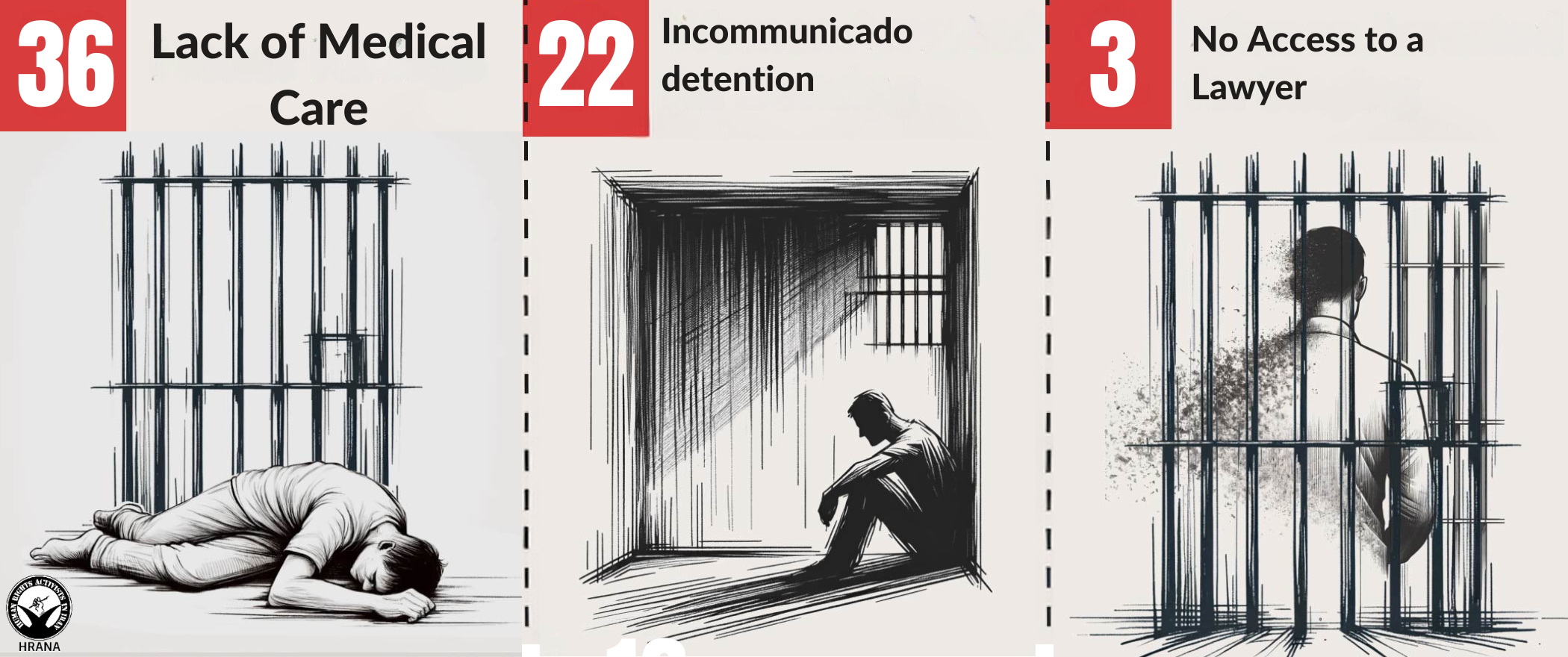
At least 75 political and ideological prisoners are being held in Ward 5 of Sheiban Prison. Recently, prisoners accused of violent crimes have been moved to this ward, causing tension among the detainees. These political prisoners are suffering from inadequate medical care, unsanitary conditions, and poor heating. Among the notable prisoners are:
- Gholamhossein Kalbi: Serving a life sentence since 2001 for alleged membership in the People’s Mujahedin Organization of Iran (PMOI). He suffers from multiple health issues and lacks access to proper medical treatment.
- Ayoub Parkar: Imprisoned since 2008 for alleged collaboration with the PMOI. At 69, he has spent 16 years in prison without sufficient medical attention.
- Mohammad Ali Ghaffari: Serving a 10-year sentence for alleged membership in the PMOI. He has been incarcerated for over 10 years and suffers from health problems, including a hernia and hypertension, without proper care.
In December 2024, singer Parastoo Ahmadi held a symbolic, audience-free concert at an ancient caravanserai, streaming it live on her YouTube channel. The performance received significant attention online. In response, the Judiciary announced the initiation of a legal case against Ahmadi and the production team, citing “female singing without adherence to legal and religious standards.” This action underscores ongoing restrictions on women’s participation in public performances in Iran.
Women
This month, 2 women were killed due to domestic violence, 1 woman was arrested for hijab violations. Women continue to face harassment and arrests for not wearing hijab properly. Additionaly there was 1 reported acid attack and 1 reported rape.
An unidentified individual entered a woman’s home in Tehran, claiming to be a neighbor. Upon her opening the door, the assailant, dressed in black, threw acid on her and fled the scene. The victim sustained injuries to her hands and feet and was promptly hospitalized. A criminal case has been initiated, and investigations are ongoing to apprehend the perpetrator.
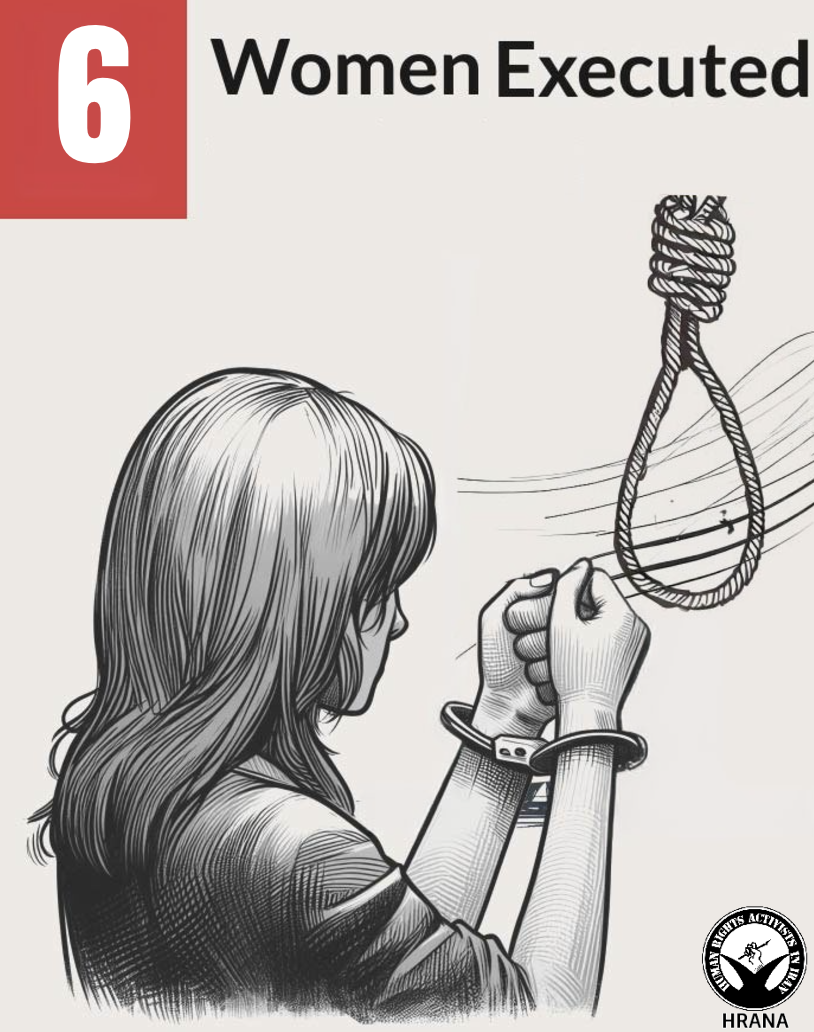 Acid attacks have been a persistent issue in Iran, with the availability of acid and insufficient preventive laws contributing to their occurrence. Despite the enactment of laws aimed at increasing penalties for acid attacks and protecting victims, such as the “Acid Attack Punishment and Victim Support Act” passed in 2019, challenges remain in effectively preventing and addressing these crimes.
Acid attacks have been a persistent issue in Iran, with the availability of acid and insufficient preventive laws contributing to their occurrence. Despite the enactment of laws aimed at increasing penalties for acid attacks and protecting victims, such as the “Acid Attack Punishment and Victim Support Act” passed in 2019, challenges remain in effectively preventing and addressing these crimes.
December 9, 2024, a 46-year-old woman in Ilam was fatally stabbed by her husband. The assailant, who turned himself in to the police, cited family disputes as the motive for the crime. This tragic incident underscores the ongoing issue of domestic violence in Iran, highlighting the urgent need for effective measures to protect women and address the root causes of such violence.
Women’s rights activist Atefeh Rangriz was sentenced by the Damghan Revolutionary Court to seven years and seven months in prison, along with a two-year ban on online activities. Her lawyer, Hossein Taj, reported that Rangriz was convicted for creating a Telegram group called “Tarjomeh Gago” and for “propaganda against the regime.” Previously, Rangriz had been arrested on September 10, 2023, in Damghan and later released on bail. She had also faced prior convictions related to her activism.
Workers
Workers in Iran face ongoing challenges and hazardous workplaces. In a tragic turn of events, this month saw 48 fatalities resulting from work-related accidents, with an additional 98 workers left injured.. This month there were also 11 strikes and 54 worker gatherings.
One of the strikes occurred at Azerbaijan Steel Company located in Mianeh, they hadnt been receiving their wages. 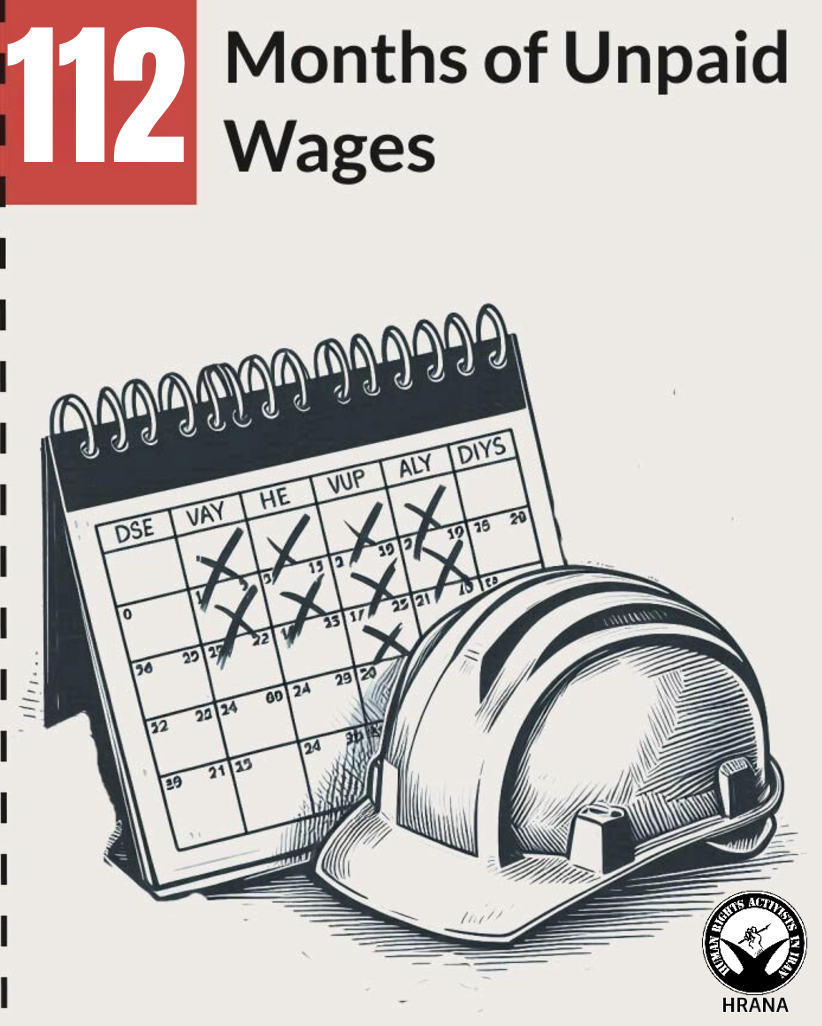
A series of workplace accidents occurred in Iran due to inadequate safety measures:-
- Fatality in Shiraz: A construction worker in Shiraz died from injuries sustained after a concrete pump tower collapsed at a construction site.
- Poisoning in Isfahan: Eight female workers at a nut processing and packaging workshop in Isfahan suffered poisoning from gas inhalation. They were hospitalized for treatment.
- Injury in Tehran: A worker in Tehran was injured while working in a 9-meter-deep well. Rescue teams successfully extricated him, and he was transferred to emergency services.
These incidents highlight the critical need for improved workplace safety standards in Iran. The country ranks 102nd globally in occupational safety, indicating significant room for improvement.
Kulbars and Monthly Report December continue to face serious dangers in their work. In December there were a total of 7 fatalities and 9 injuries. Military forces in the vicinity of Rigan County opened fire on a fuel carrier, resulting in the injury of the driver, 21-year-old Wahid Barahoui from Khash. The incident occurred at a checkpoint approximately five kilometers from Rigan city, where military personnel fired directly at Barahoui’s vehicle without prior warning. He sustained gunshot wounds to his hand and neck and was subsequently hospitalized in Rigan County. This event underscores the ongoing issue of unregulated use of force by military personnel in Iran, particularly in regions like Sistan and Baluchestan. Such incidents highlight the need for stricter regulations and oversight to prevent the misuse of power and to protect the rights and safety of citizens.
A Kurdish Kulbar was fatally shot by military forces near the Nowsud border area. He succumbed to his injuries at Taleghani Hospital in Kermanshah. Kolbari, a hazardous and informal occupation, often leads to fatalities due to natural dangers and military shootings. In 2024, at least 29 kolbars were killed, and 353 were injured by border guards and police forces.
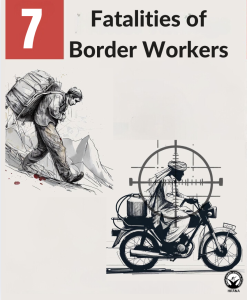
International News Update:
On December 13, 2024, United Nations human rights experts expressed deep concern over Iran’s new “Law on Protecting the Family through the Promotion of the Culture of Chastity and Hijab.” This legislation imposes severe penalties on women and girls aged 12 and above who fail to wear the hijab, both online and offline, and on those promoting or advertising “nudity” or “immodest dressing.” The law introduces heftier fines and longer prison sentences, with penalties extending up to 15 years.
The experts described the law as an intensification of state control over women’s bodies in Iran, representing a further assault on women’s rights and freedoms. They called on the Iranian government to immediately repeal the law and all other discriminatory legislation that violates women’s rights. This development highlights the ongoing international concern regarding women’s rights in Iran and the increasing restrictions on personal freedoms.
On December 17, 2024, the United Nations General Assembly passed a resolution condemning Iran for its human rights violations, particularly the persecution of the Baha’i community. The resolution, supported by 80 countries, highlights the ongoing severe restrictions faced by Baha’is and others in Iran on their freedom of thought, religion, and belief. It calls for Iran to amend penal code articles that criminalize non-Muslim religious expression, which have led to the arrest, trial, and imprisonment of Baha’is without evidence. The resolution also emphasizes the increasing hate speech, harassment, and systemic persecution Baha’is face, including property confiscation and destruction. The Baha’i International Community welcomed the resolution, urging the Iranian government to respect human rights and ensure freedom and dignity for all citizens. Several countries, including Brazil, the UK, Ghana, and others, voiced concerns about the escalating targeting of religious minorities, particularly Baha’i women.
Following the vote, on December 23, 2024, United Nations human rights experts expressed grave concern over the escalating persecution of Baha’i women in Iran. They highlighted that these women face systemic discrimination, including arbitrary arrests, imprisonment, and denial of basic rights, solely due to their religious beliefs. The experts emphasized that this targeted persecution represents a significant deterioration in both gender equality and the treatment of religious minorities in Iran.
The experts called on the Iranian government to cease the harassment and persecution of Baha’i women, urging the immediate release of those unjustly detained and the restoration of their rights. They also stressed the importance of upholding international human rights standards and ensuring the protection of all individuals, regardless of their religious affiliation.
This statement underscores the international community’s growing concern over the treatment of Baha’i women in Iran and the need for the Iranian government to address these human rights violations




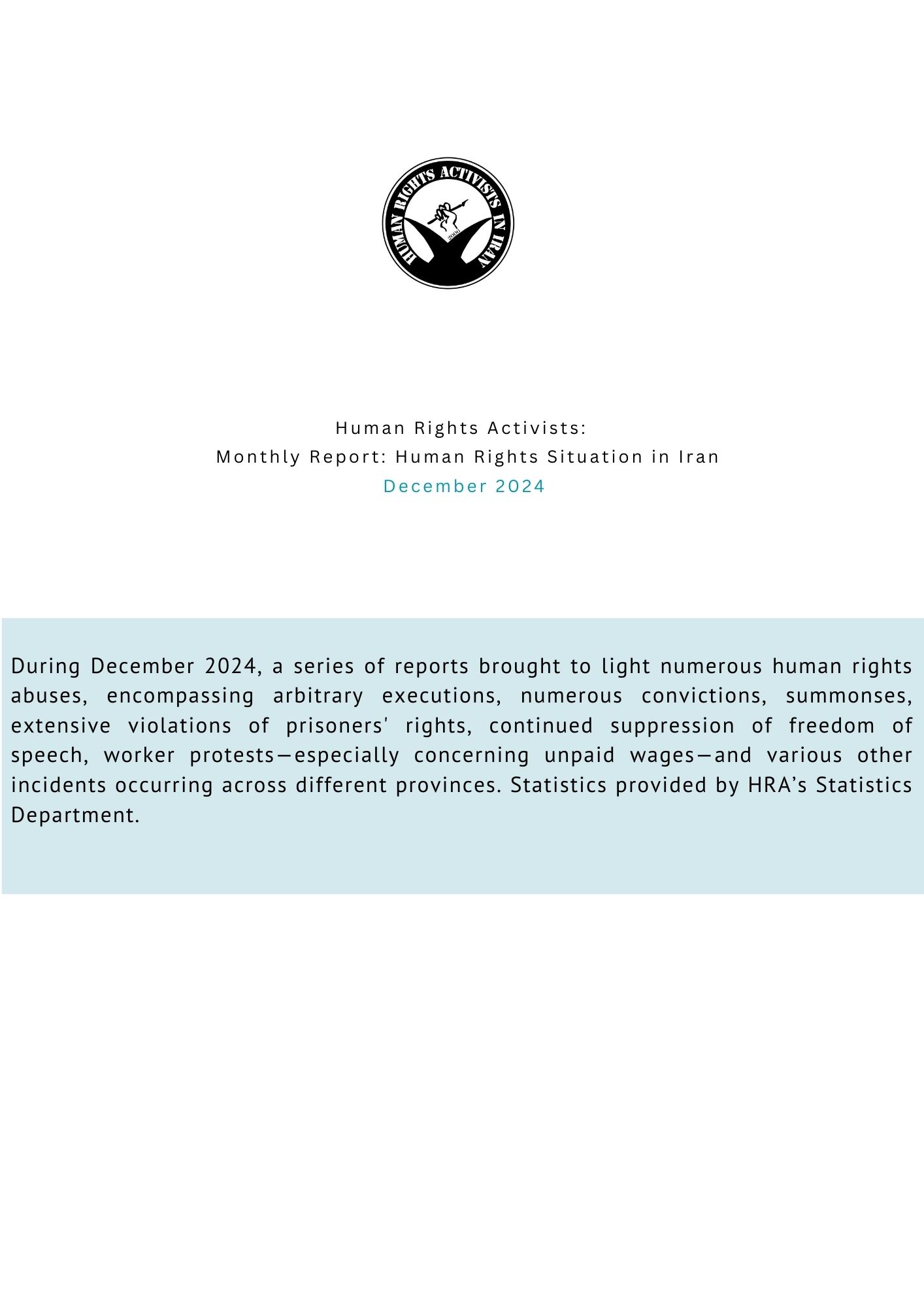
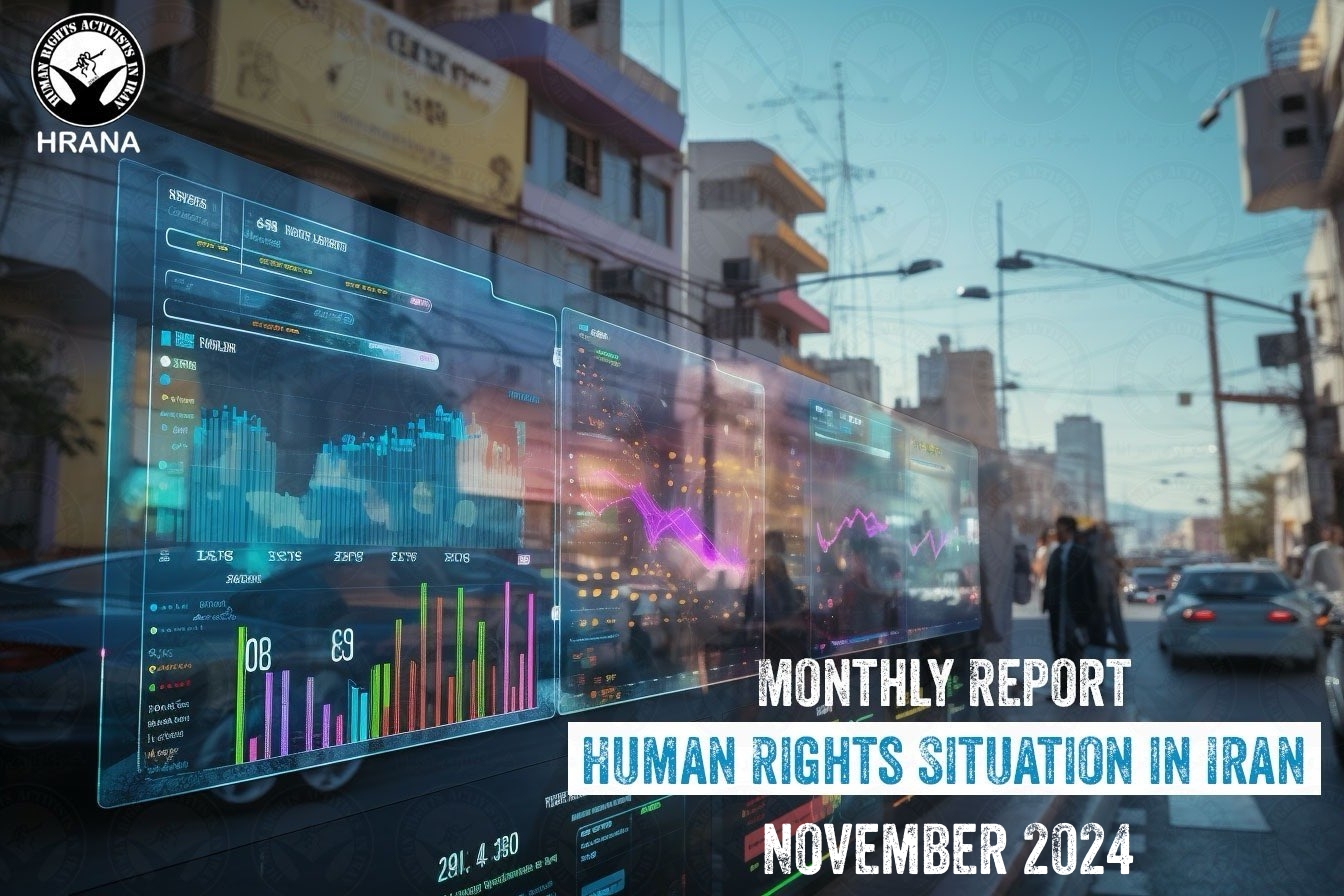
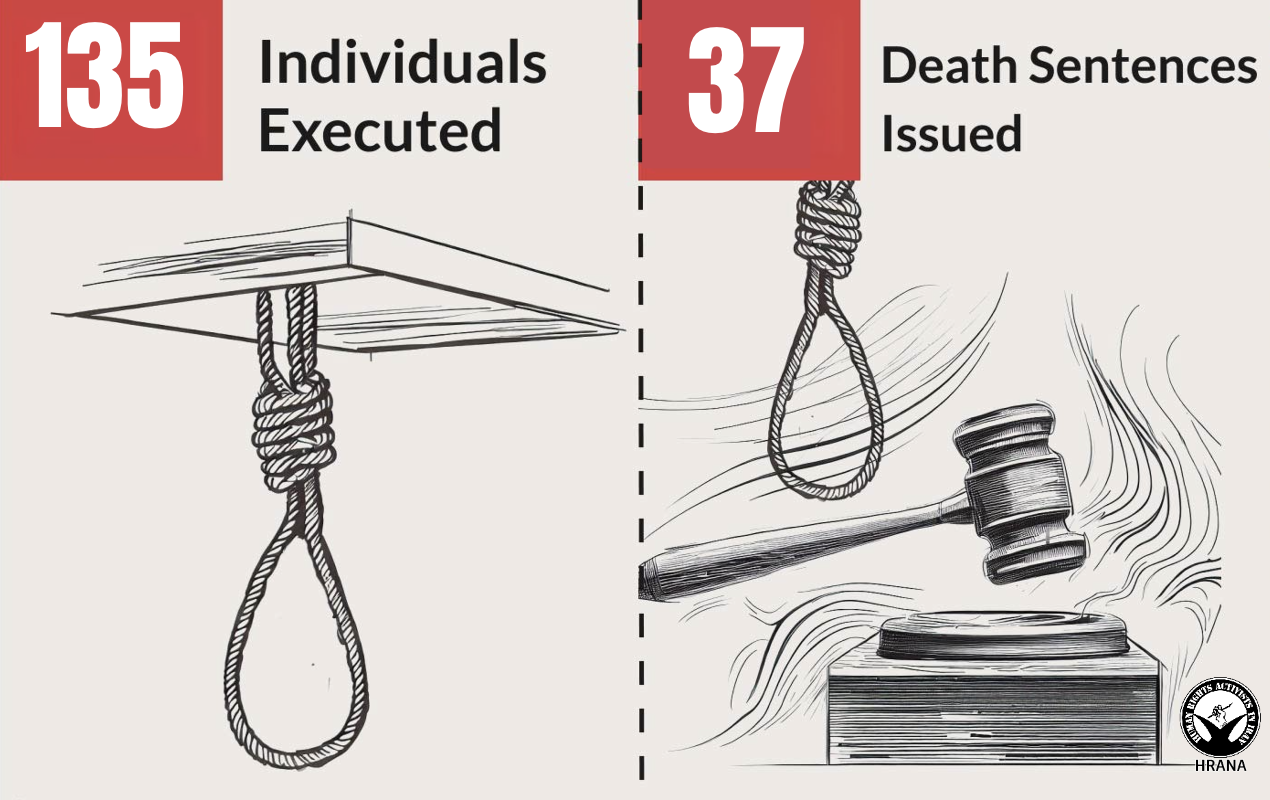
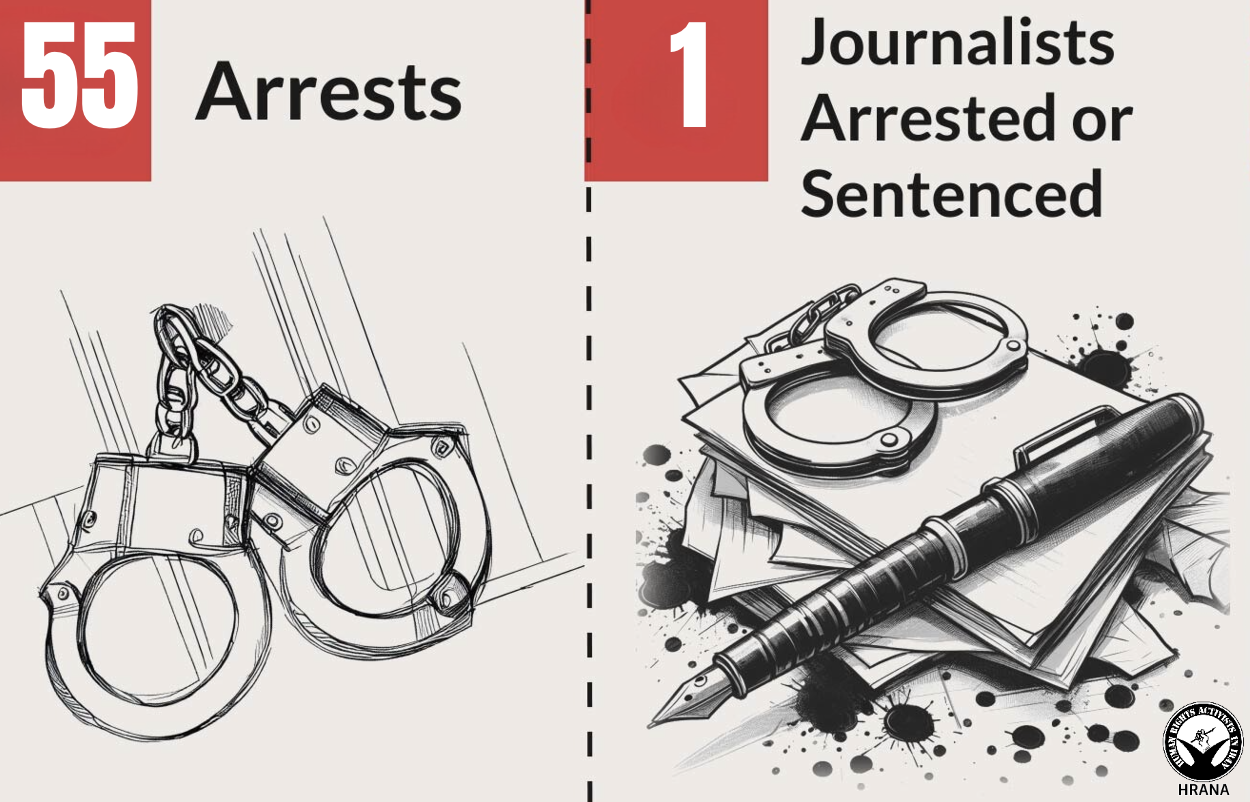

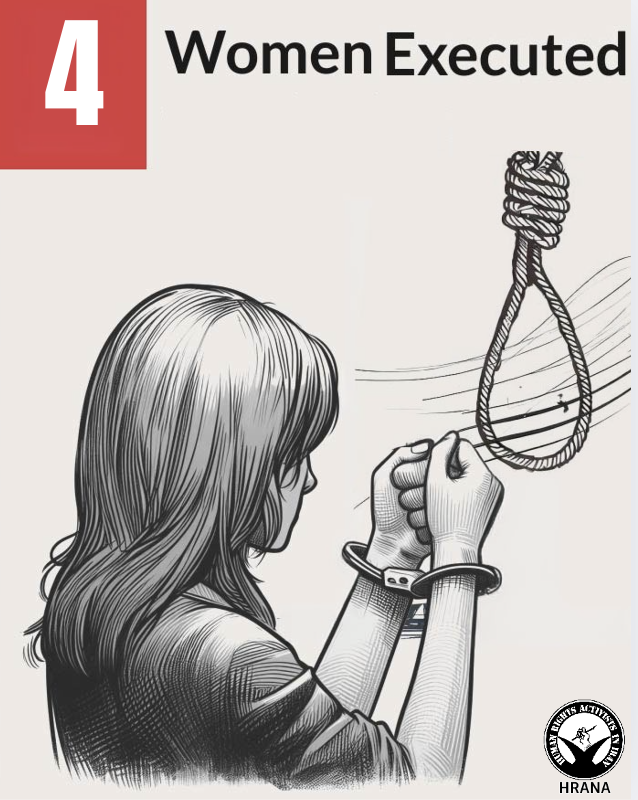
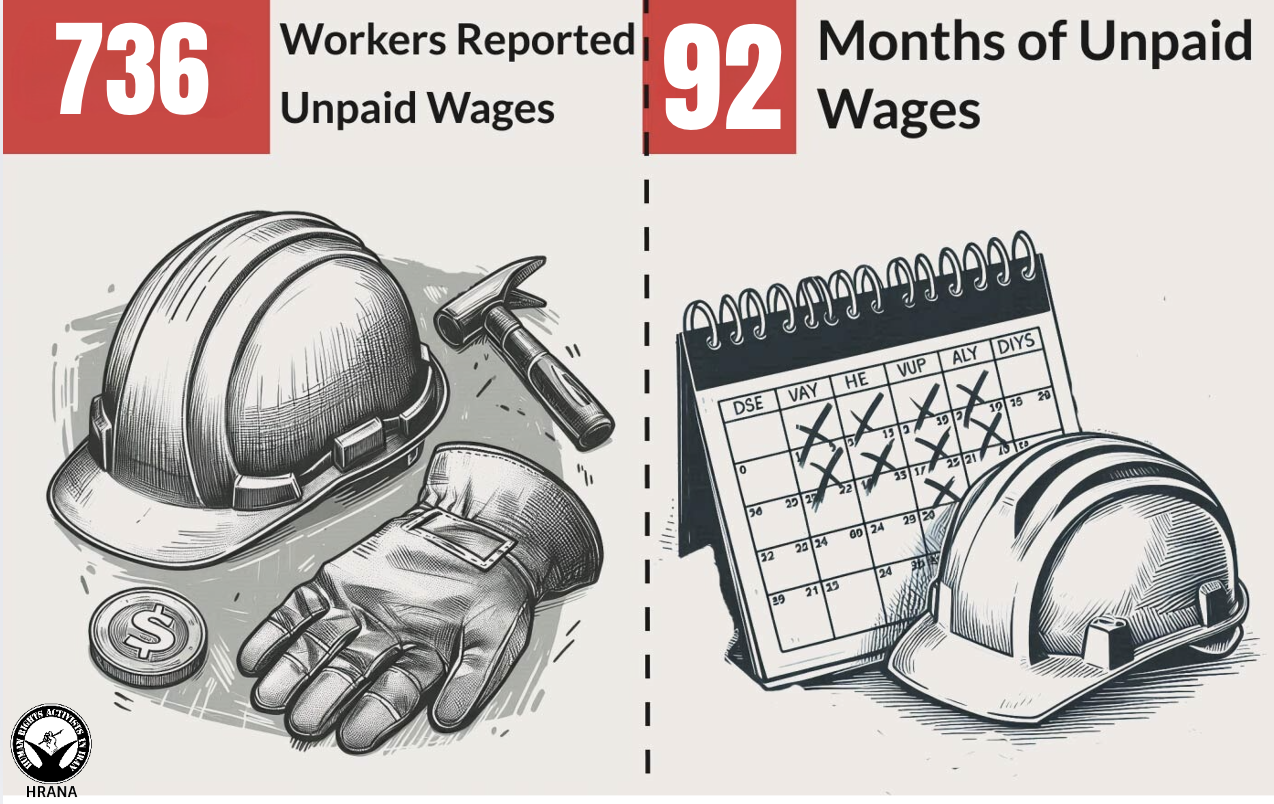 ated accidents, with an additional 135 workers left injured. Moreover, 736 workers reported unpaid wages. This month there were also 2 strikes and 32 worker gatherings.
ated accidents, with an additional 135 workers left injured. Moreover, 736 workers reported unpaid wages. This month there were also 2 strikes and 32 worker gatherings.









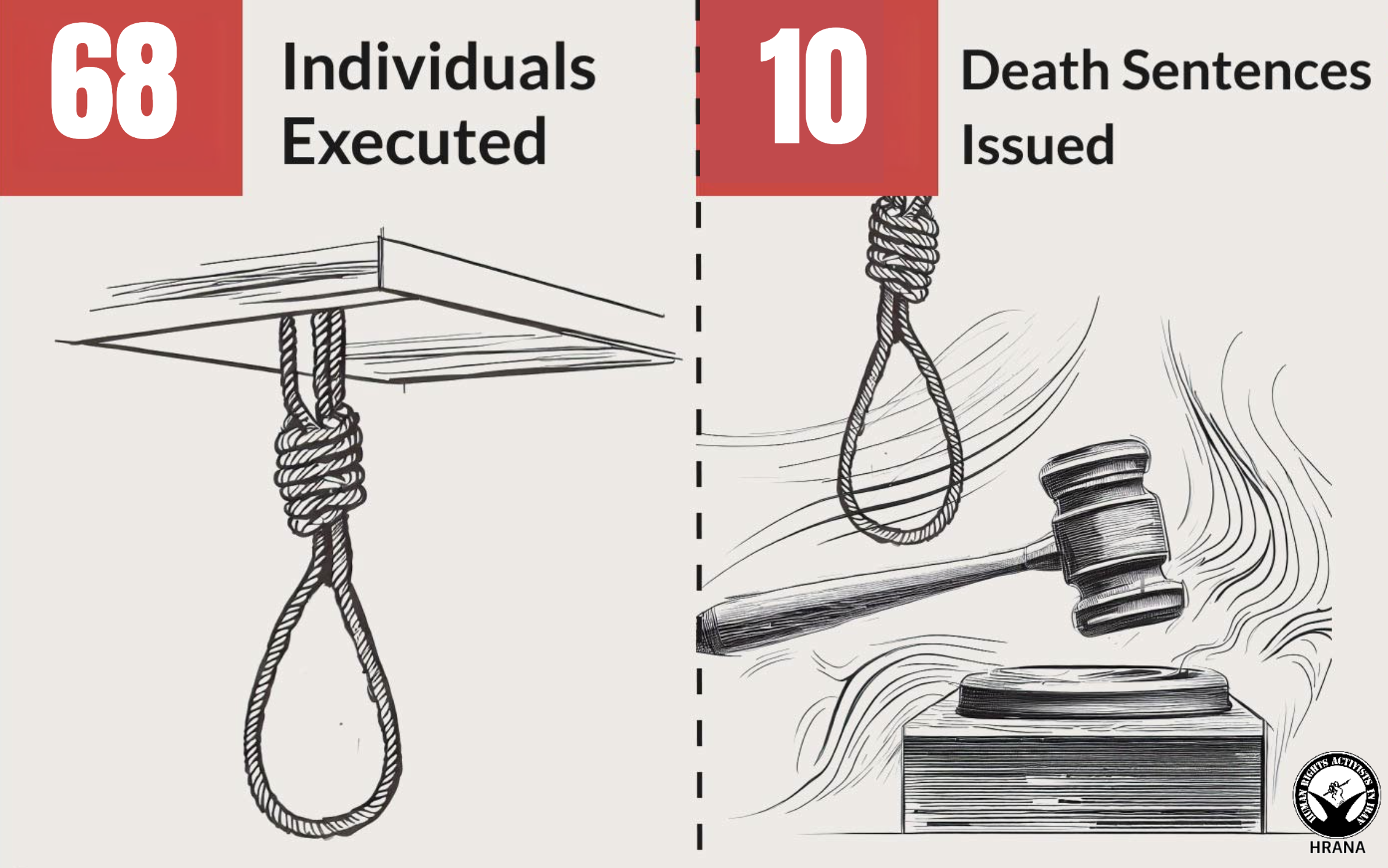 In one week, at an alarming rate,
In one week, at an alarming rate, 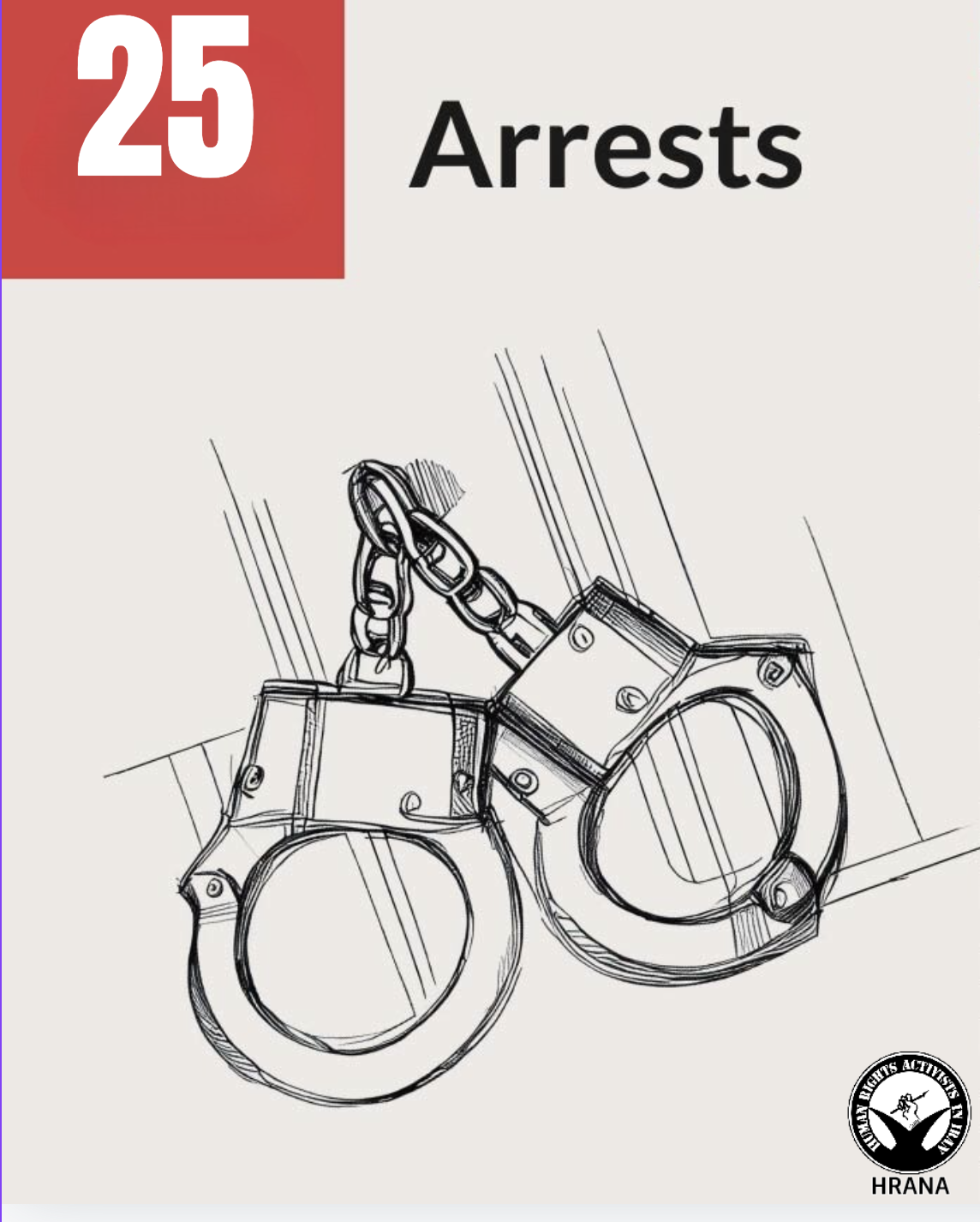

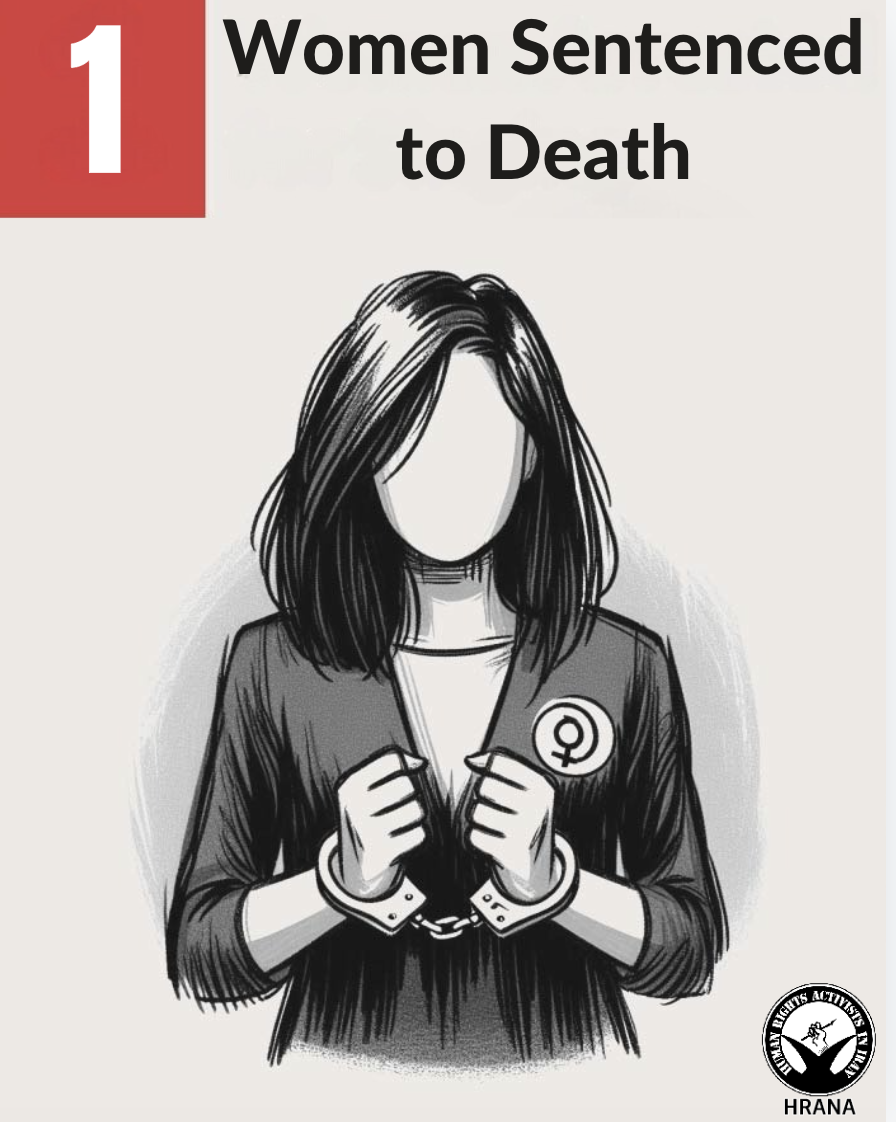
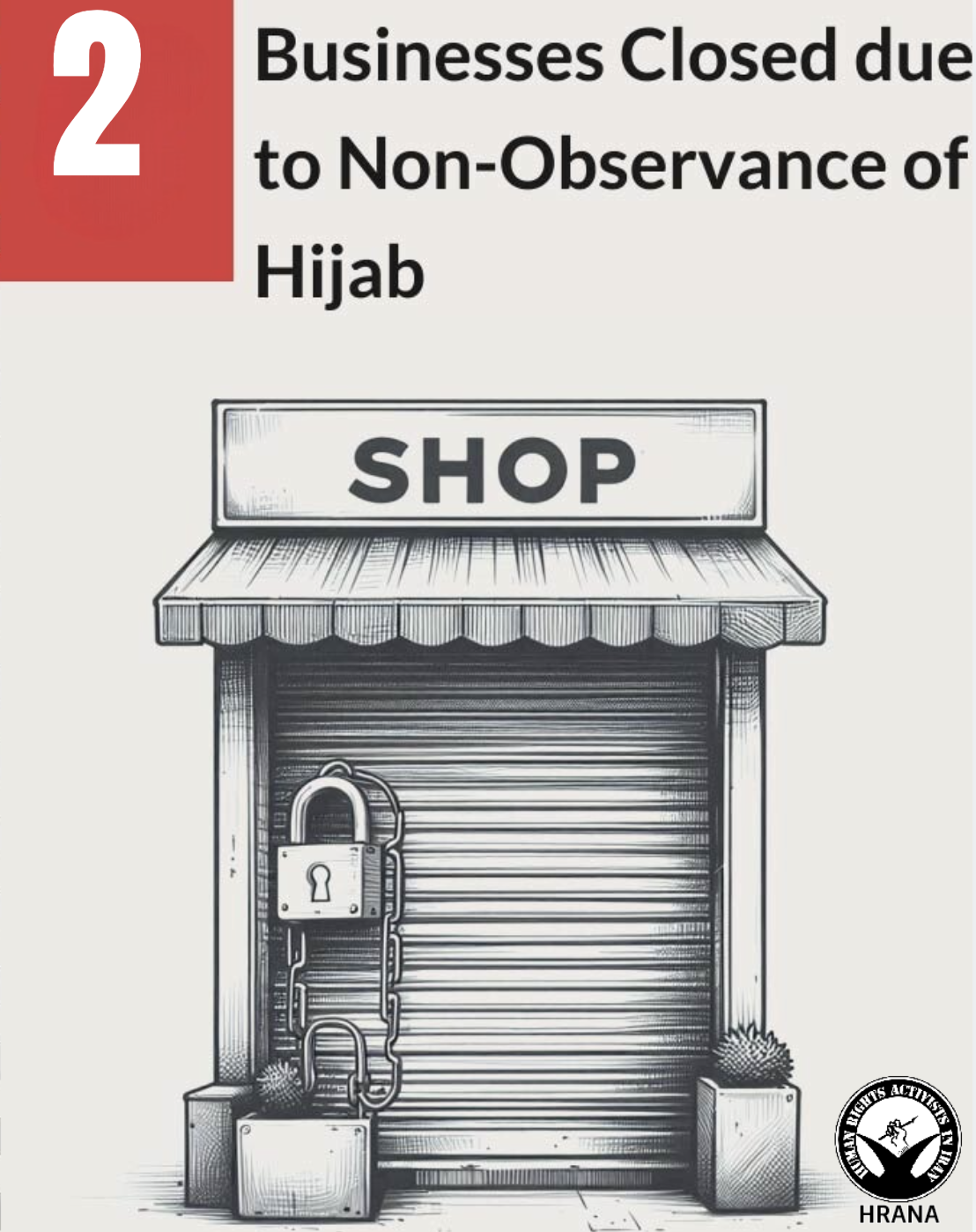 A
A 
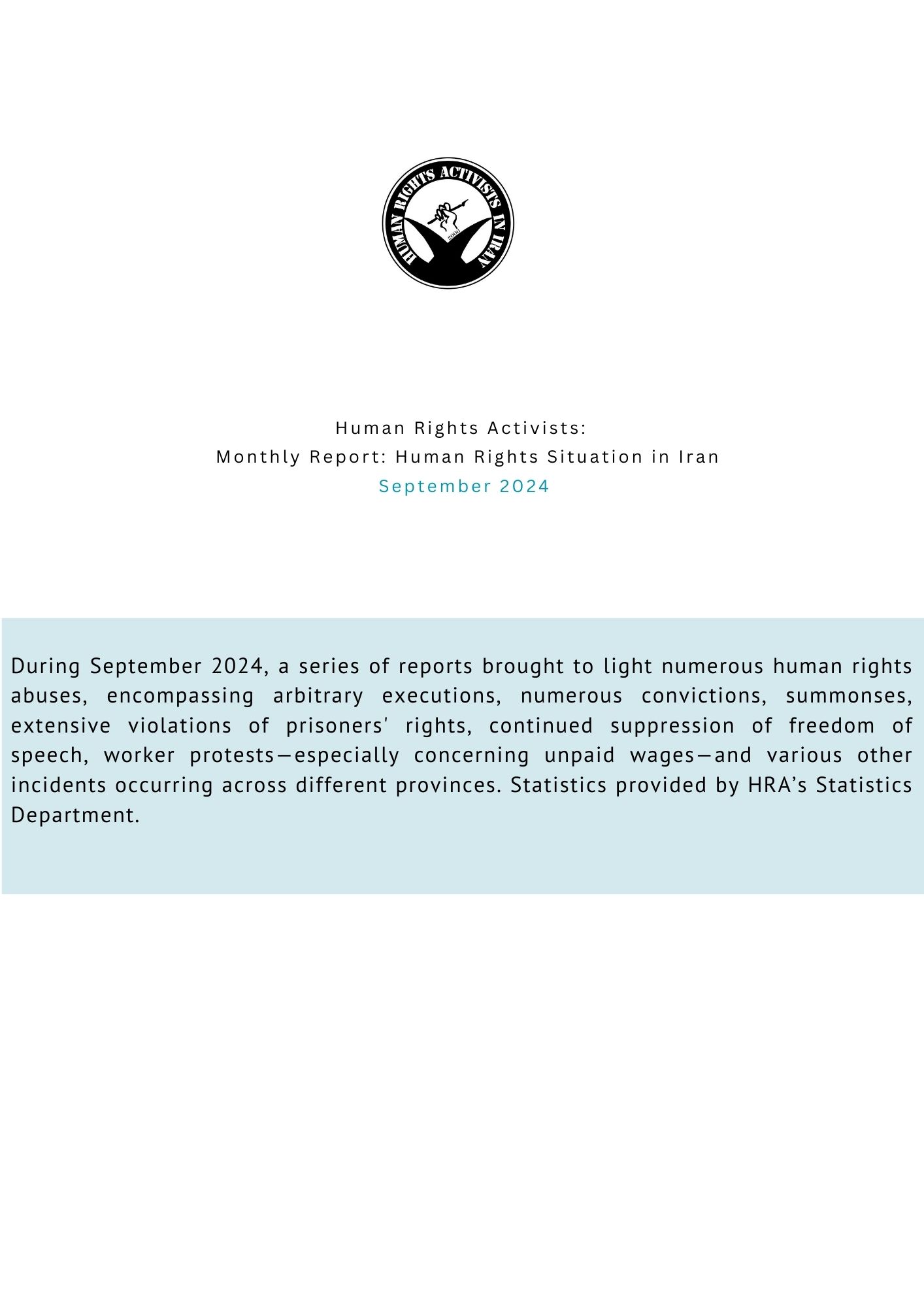

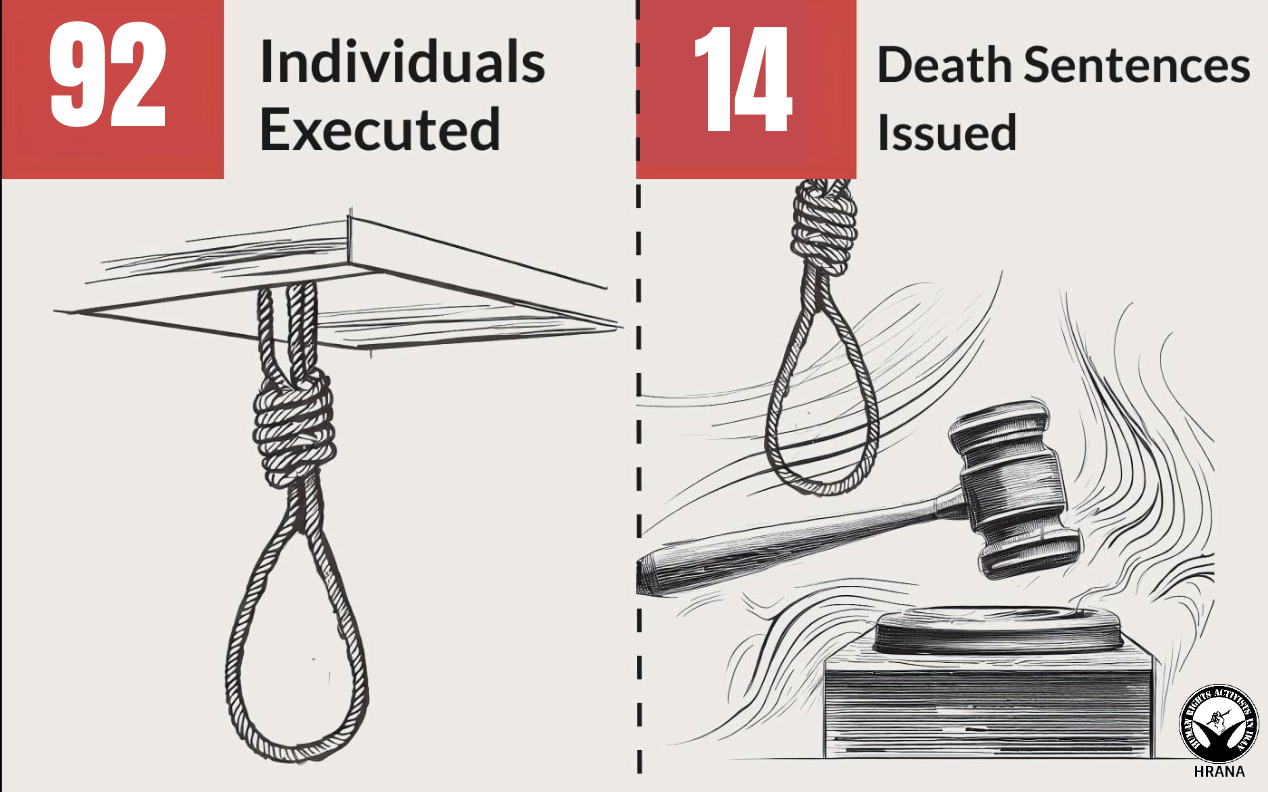


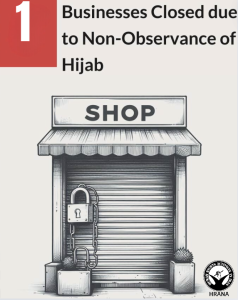 enforce the mandatory hijab more strictly. Since its implementation, there have been numerous reports of violent actions and arrests targeting women who do not comply with these requirements.
enforce the mandatory hijab more strictly. Since its implementation, there have been numerous reports of violent actions and arrests targeting women who do not comply with these requirements.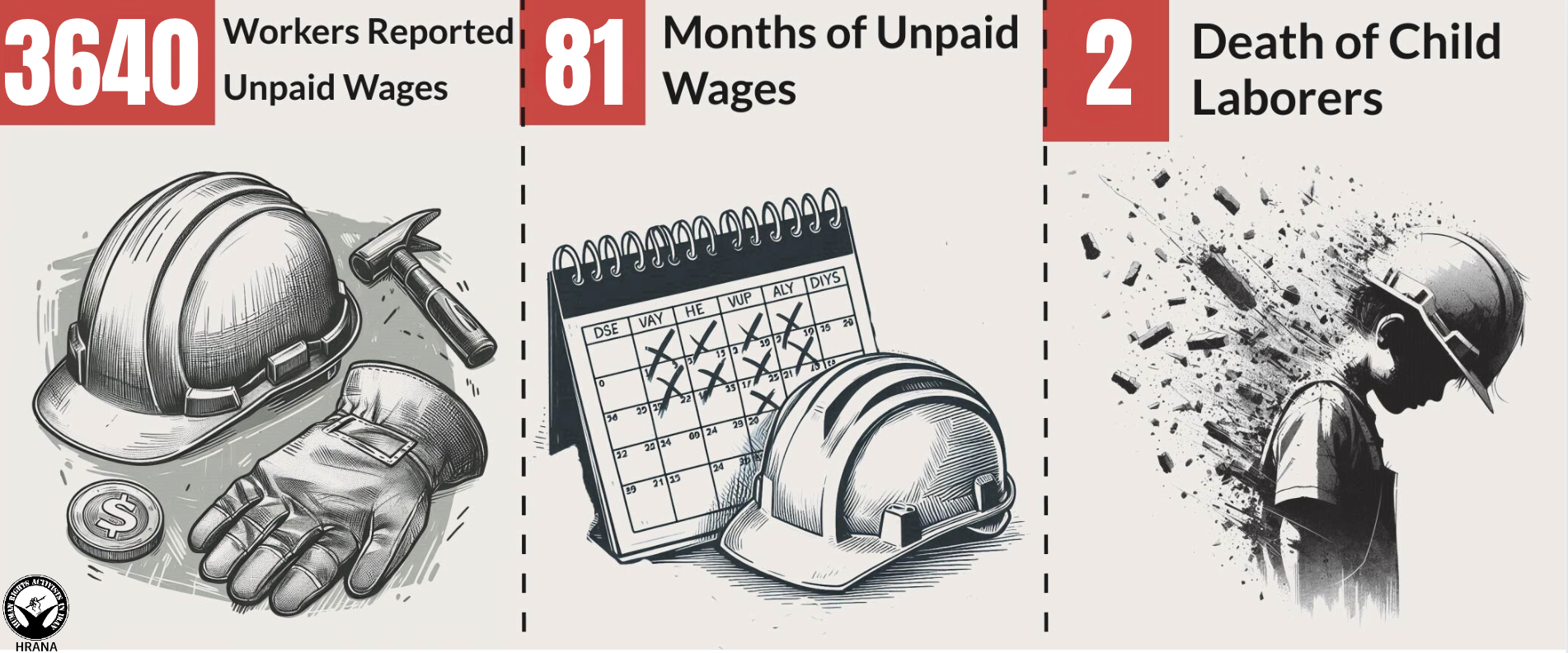
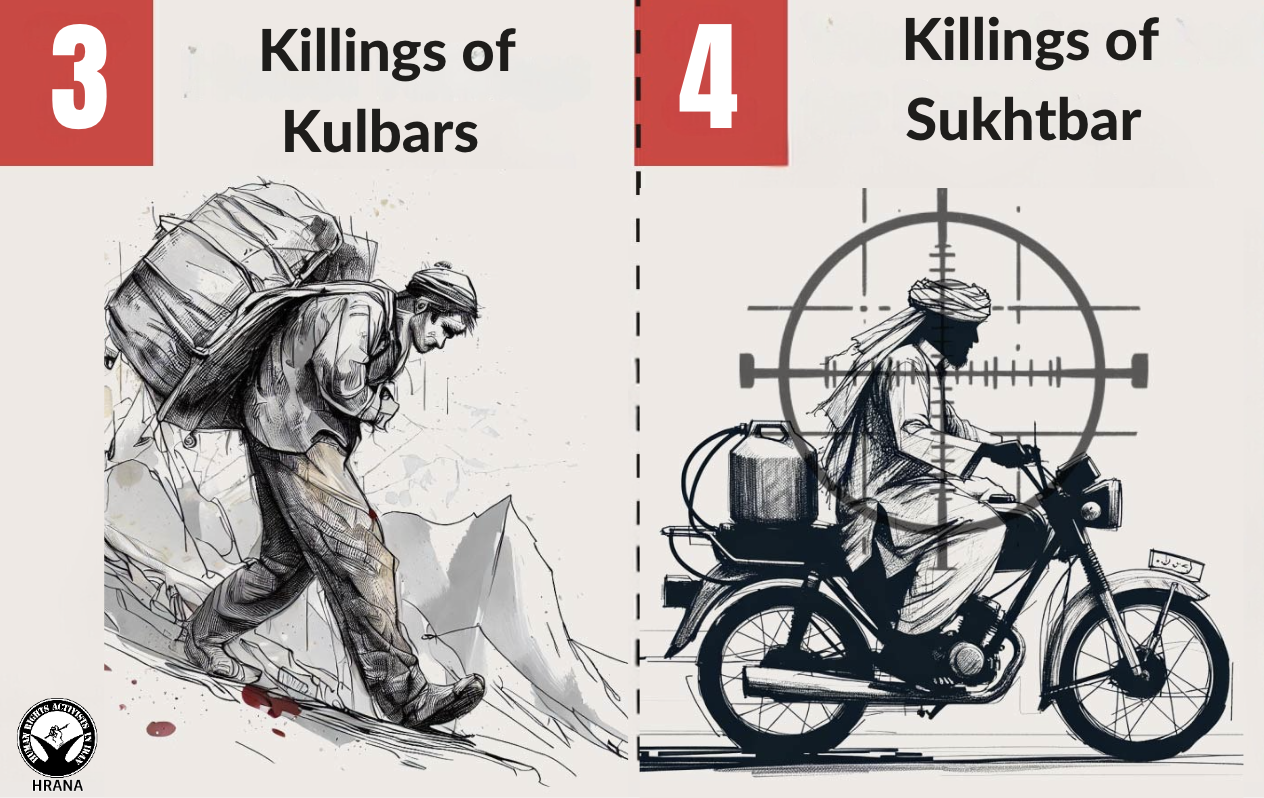




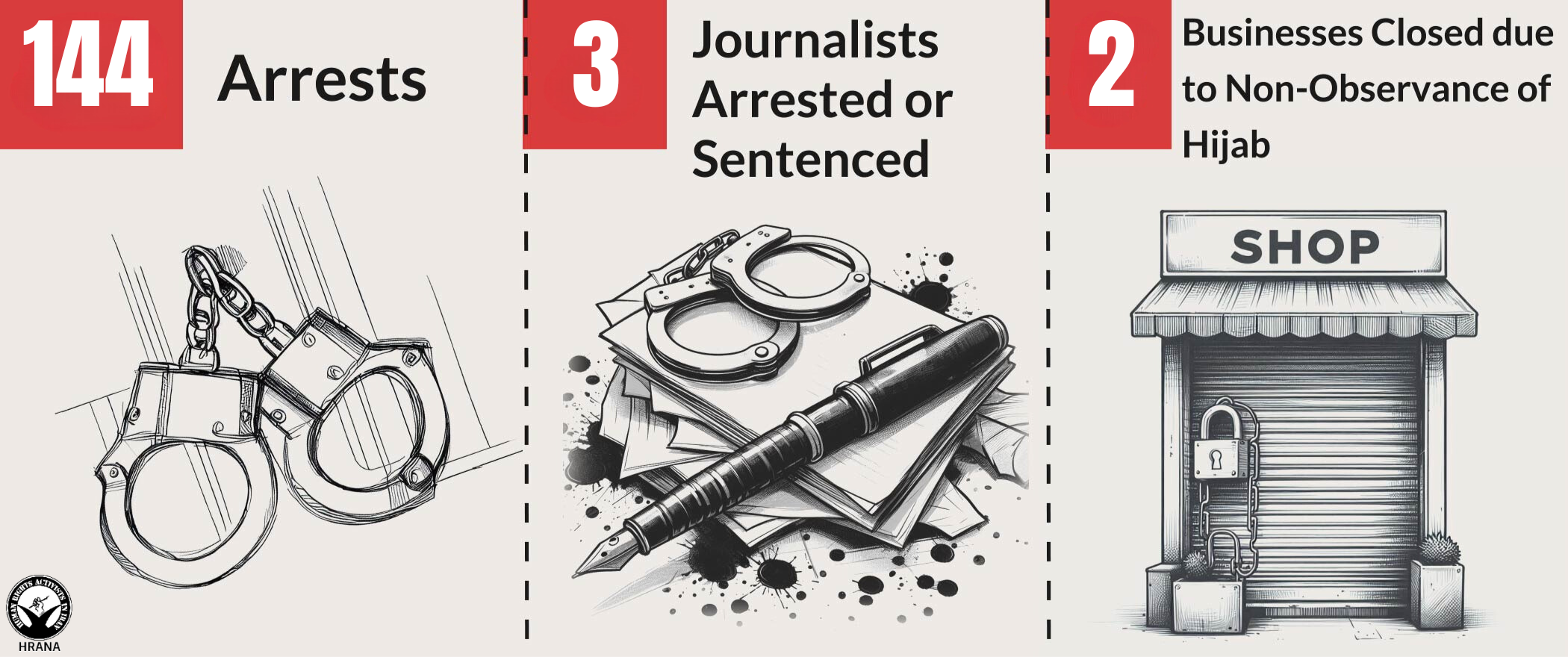
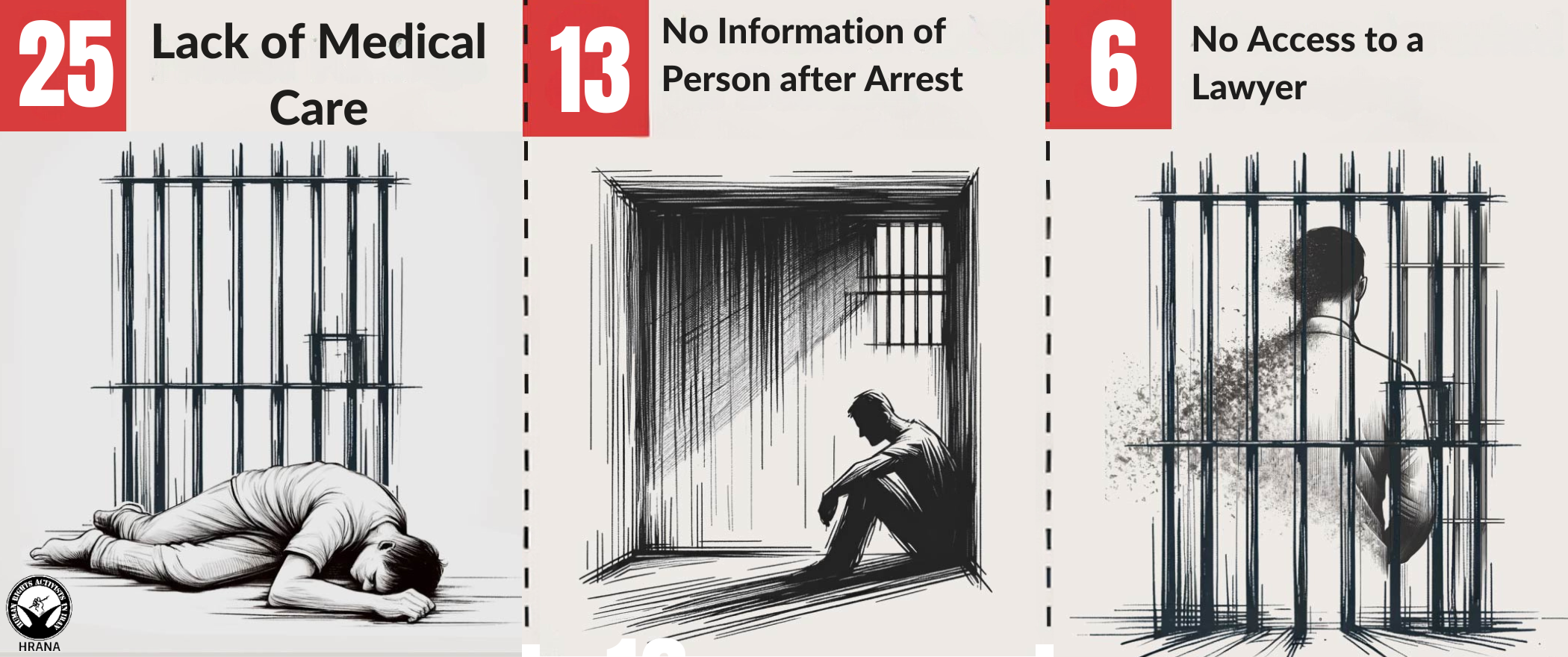
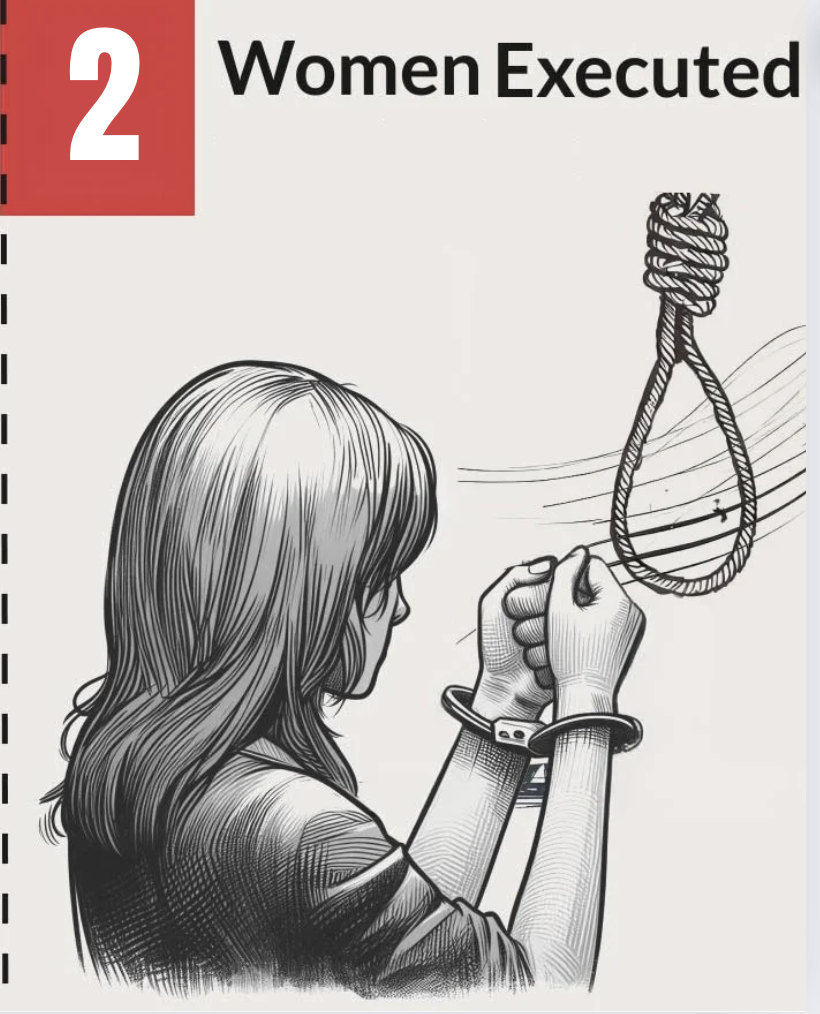
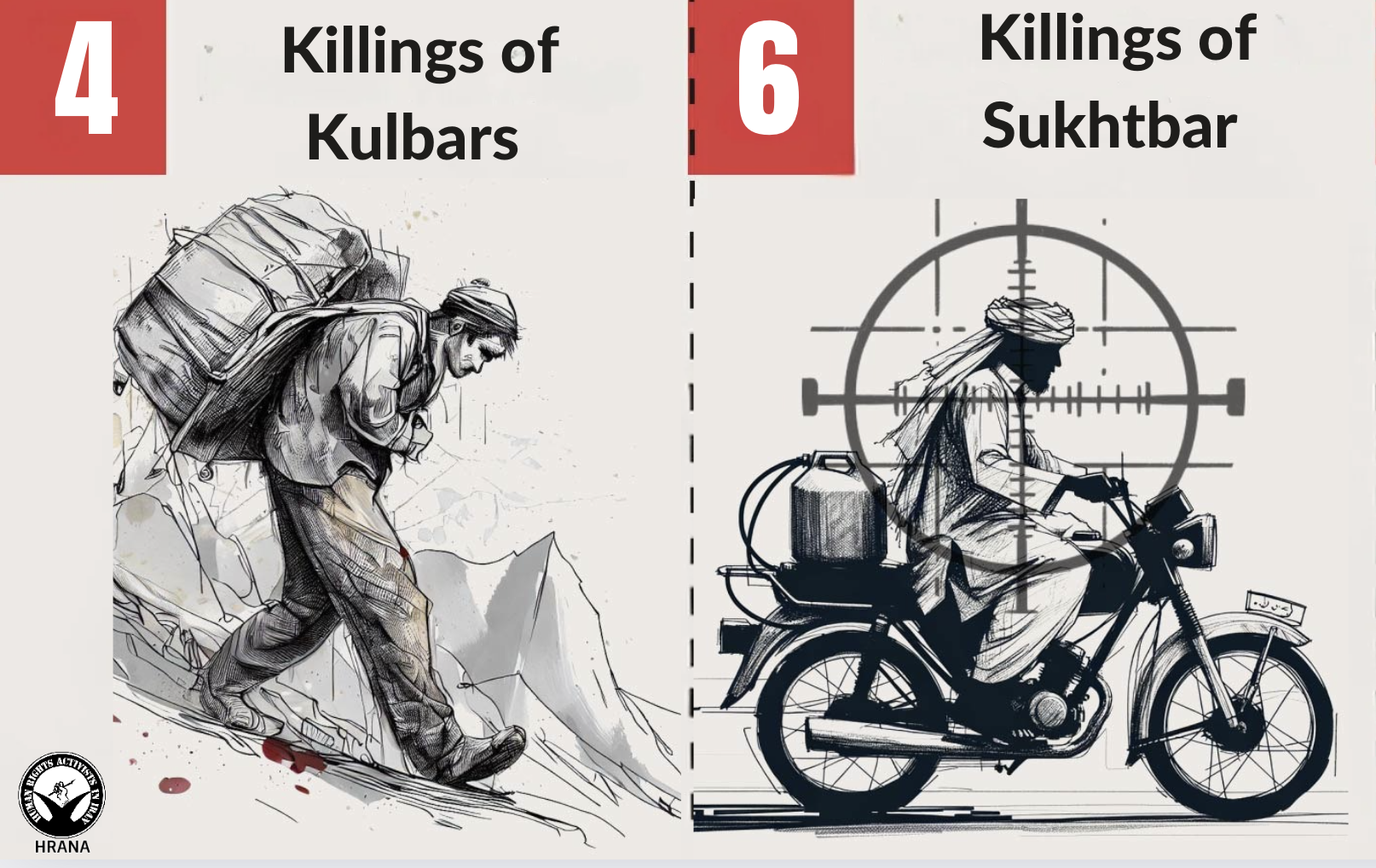
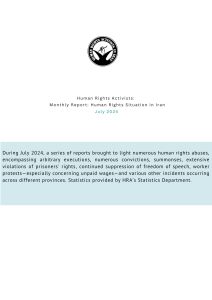
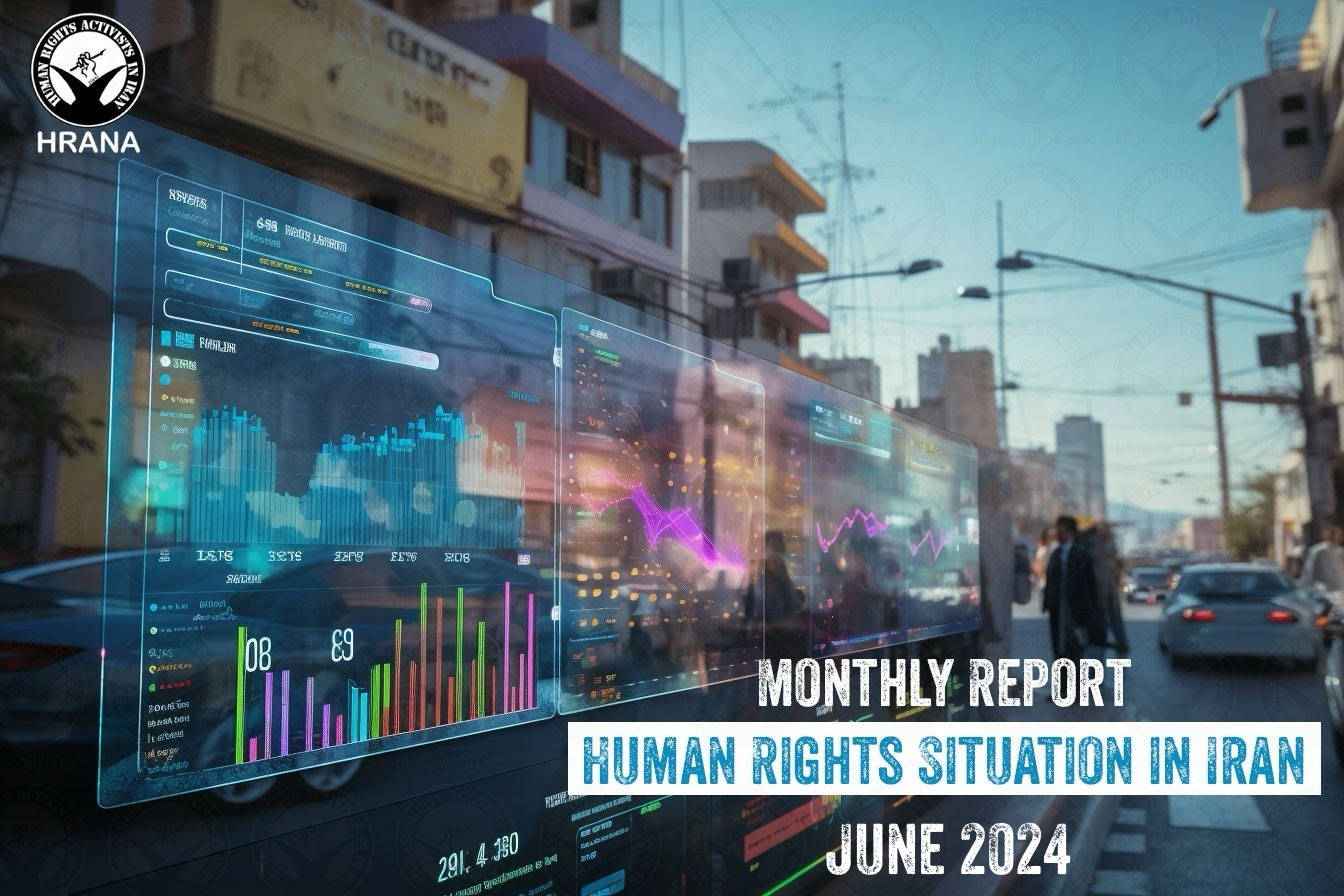

 defamation, and threats, following complaints from the Islamic Council, Mohsen Dehnavi, Zahra Sheikhi, and two others. Additionally,
defamation, and threats, following complaints from the Islamic Council, Mohsen Dehnavi, Zahra Sheikhi, and two others. Additionally, 



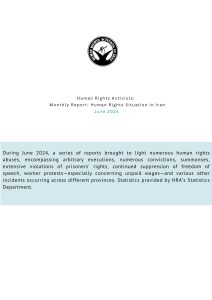


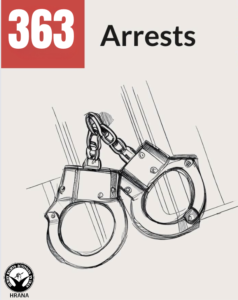



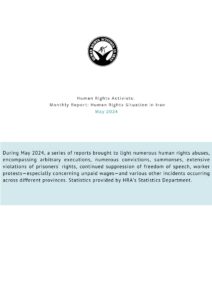



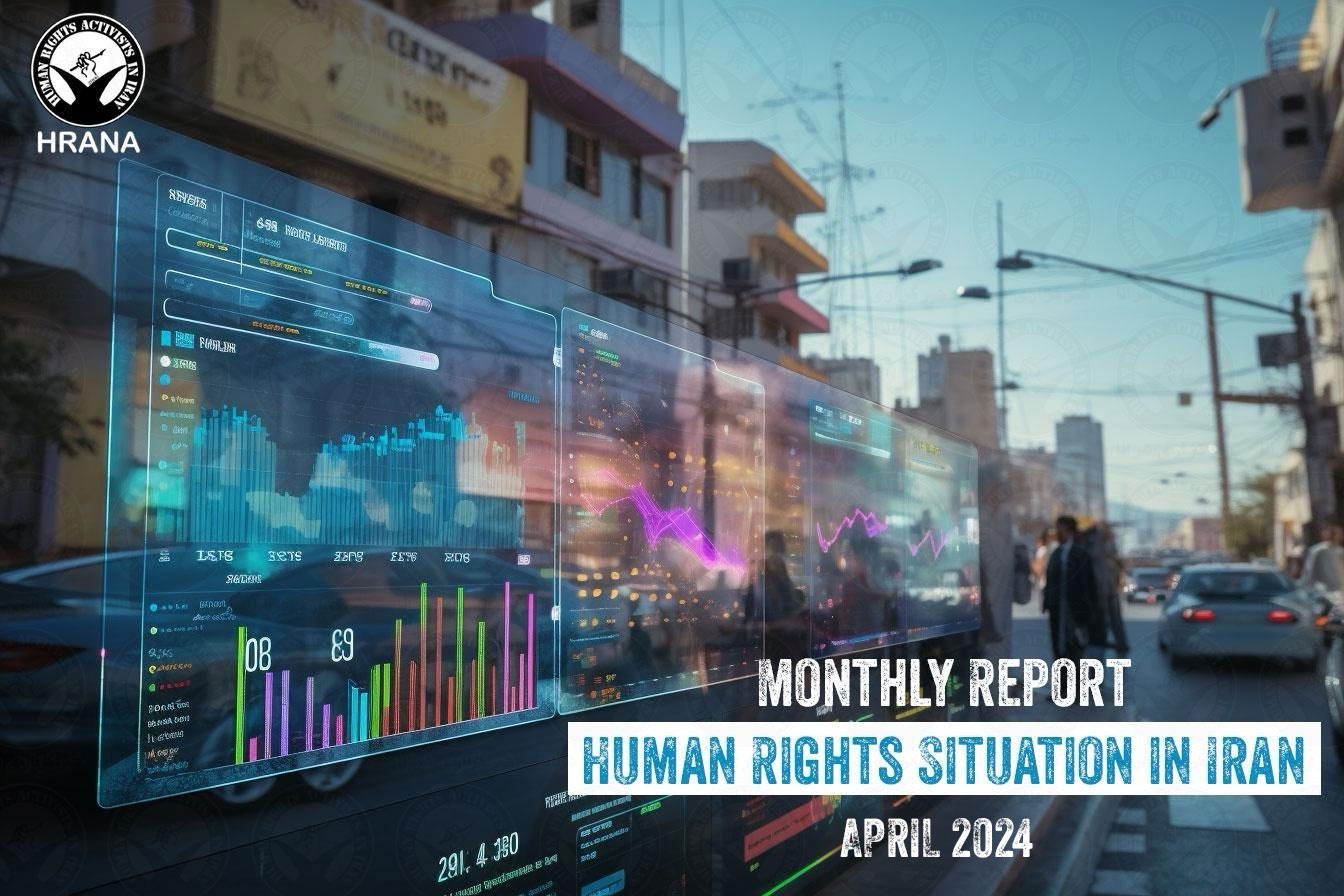


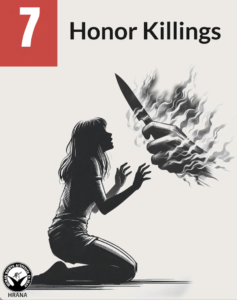 during the September 2022 protests, was recently arrested by Tehran’s Morality Police for non-compliance with hijab regulations.
during the September 2022 protests, was recently arrested by Tehran’s Morality Police for non-compliance with hijab regulations. 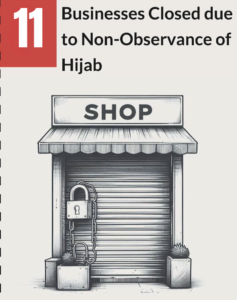 and daughter of Iranian football veteran Ahmadreza Abedzadeh, were arrested in Tehran for not observing the “mandatory hijab”, they were released shortly after. Lastly, Authorities in Bushehr Province have arrested seven women for sharing social media content related to modeling and photography.Their Instagram posts were removed, and electronic devices were confiscated.
and daughter of Iranian football veteran Ahmadreza Abedzadeh, were arrested in Tehran for not observing the “mandatory hijab”, they were released shortly after. Lastly, Authorities in Bushehr Province have arrested seven women for sharing social media content related to modeling and photography.Their Instagram posts were removed, and electronic devices were confiscated.
